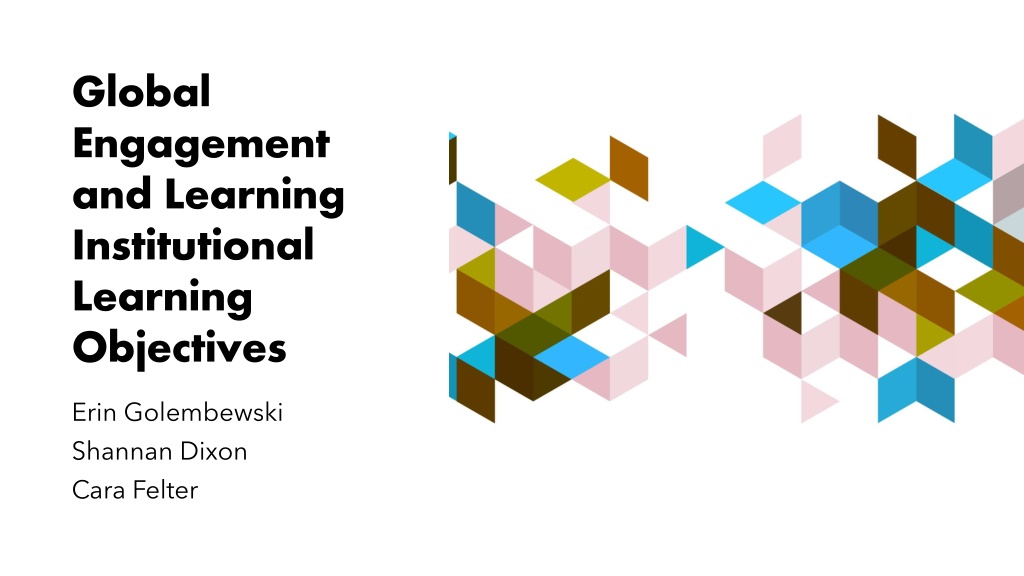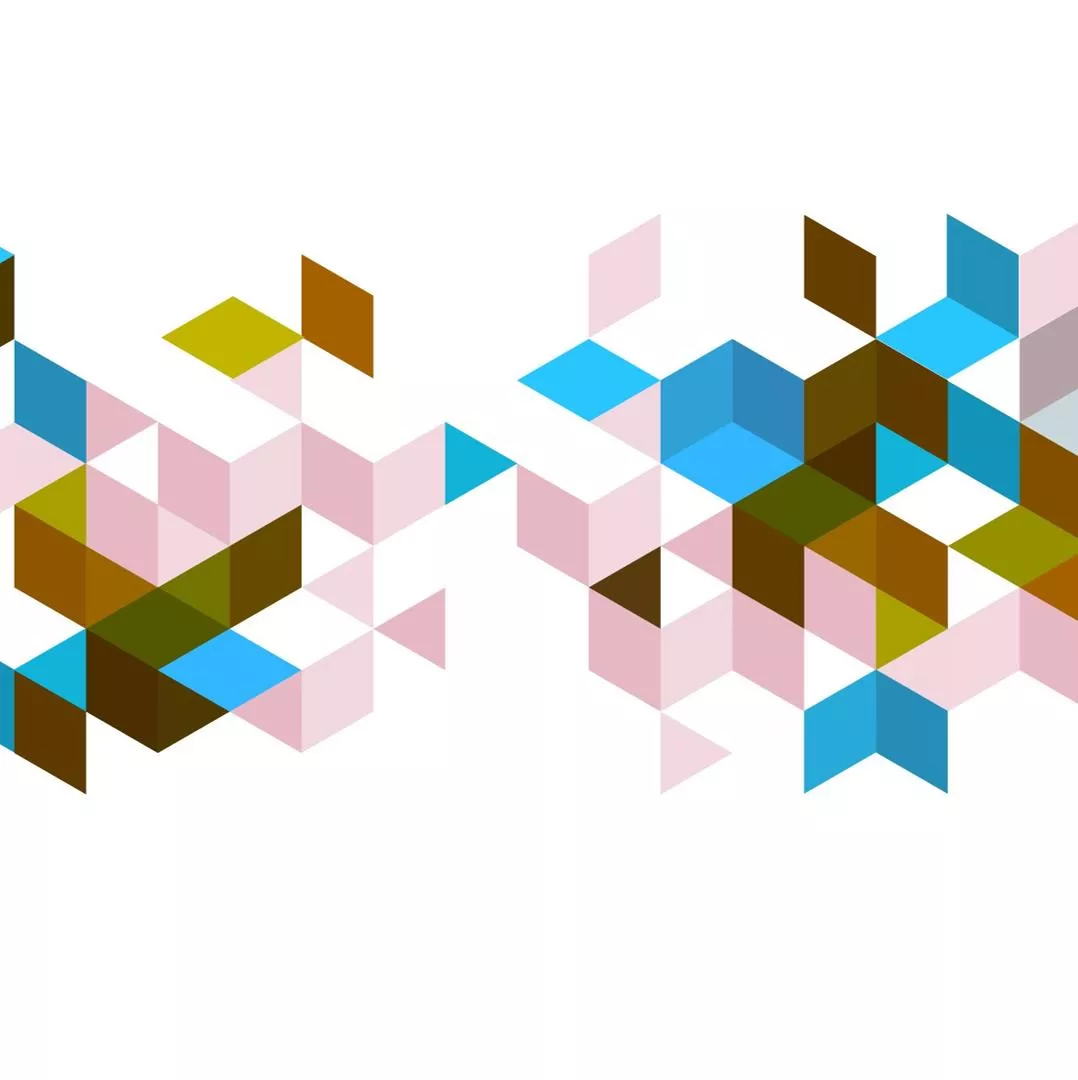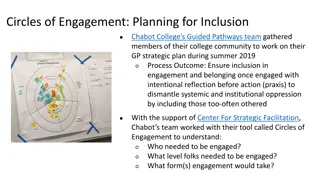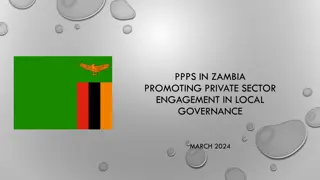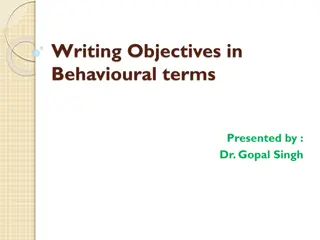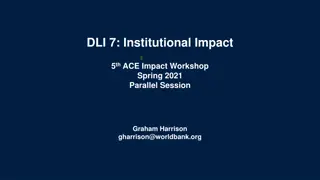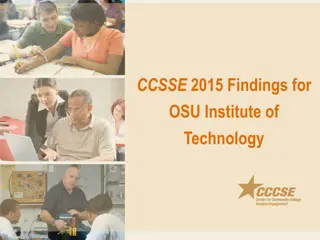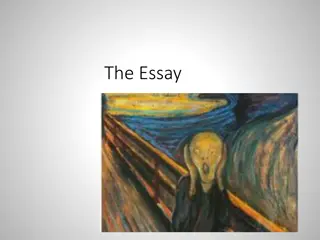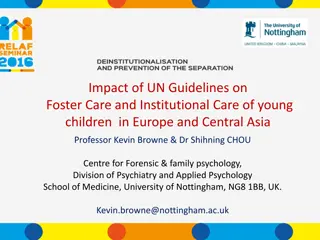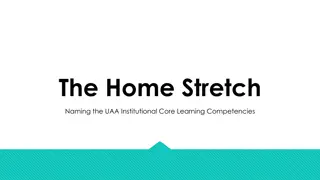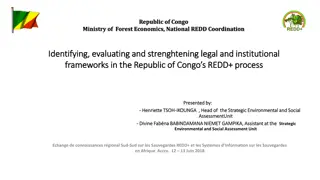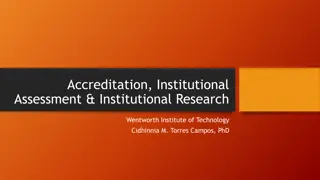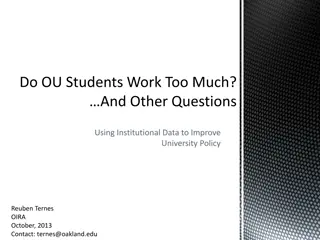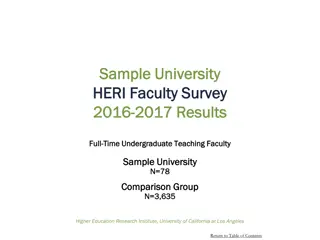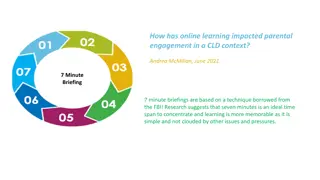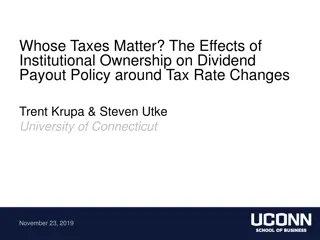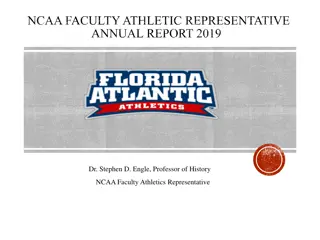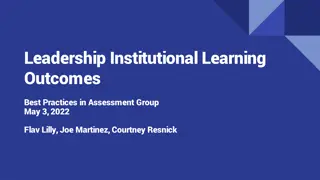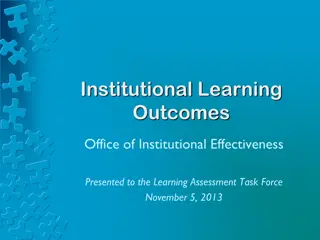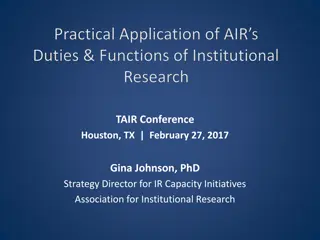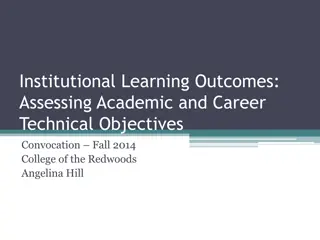Global Engagement and Learning Institutional Objectives Overview
This content introduces the institutional learning objectives of a global engagement and learning institution, focusing on graduates' exposure to interrelationships among self, local, and global communities, reflection of self-perspective and cultural diversity awareness, integration of world perspectives in problem-solving, and understanding complex global systems. The iterative process, responsible for outcomes, resources, and assessment methods are discussed along with specific objectives and their importance in fostering global citizenship in education.
Download Presentation

Please find below an Image/Link to download the presentation.
The content on the website is provided AS IS for your information and personal use only. It may not be sold, licensed, or shared on other websites without obtaining consent from the author. Download presentation by click this link. If you encounter any issues during the download, it is possible that the publisher has removed the file from their server.
E N D
Presentation Transcript
Global Engagement and Learning Institutional Learning Objectives Erin Golembewski Shannan Dixon Cara Felter
Task Force + We wish to thank the following individuals for providing feedback on the objectives: + Patty Alvarez (Assistant Vice President of Student Affairs) + Gregory Brightbill (PSLI) + Linda Horn (GLOBALtimore Fellow) + Diane Marie St. George (MPH) + Amy Ramirez (Center for Global Engagement)
Institutional Learning Objectives + On completion of a degree from the University of Maryland, Baltimore: 1. Graduates will have exposure to the interrelationships among the self, local and global communities. Graduates will demonstrate reflection of self-perspective and an awareness and appreciation of cultural diversity. Graduates will have opportunities to integrate awareness of world perspectives to aid in solving real life problems. Graduates will have the ability to recognize and understand complex global systems and identify personal, ethical, moral, relationships, and obligations within those systems. 2. 3. 4.
The Iterative Process + Terminology: focus on graduates because we're looking at outcomes + Thinking long-term to the assessment phase + Who is responsible for these outcomes? + Keeping the ILOs broad enough for the variety of programs
Resources Along the Way + 2018 President s Symposium White Paper on Global Literacy + AAC&U Learning Outcomes Resources + AAC&U Global Learning Value Rubric + Rubric Development Resources from the UMB FCTL
Objective One Graduates will have exposure to the interrelationships among the self, local and global communities. + Why is it important? Best practice for global citizenship in education + How to assess? Include in annual APAIR by each program
Objective Two Graduates will demonstrate reflection of self- perspective and an awareness and appreciation of cultural diversity. + Why is it important? + How to assess? Programmatic evaluation for respective accreditation
Objective Three Graduates will have opportunities to integrate awareness of world perspectives to aid in solving real life problems. + Why is it important? + How to assess? IPE day, International Travel Programs, other global events
Objective Four Graduates will have the ability to recognize and understand complex global systems and identify personal, ethical, moral, relationships, and obligations within those systems. + Why is it important? + How to assess? Programmatic evaluation for accreditation
